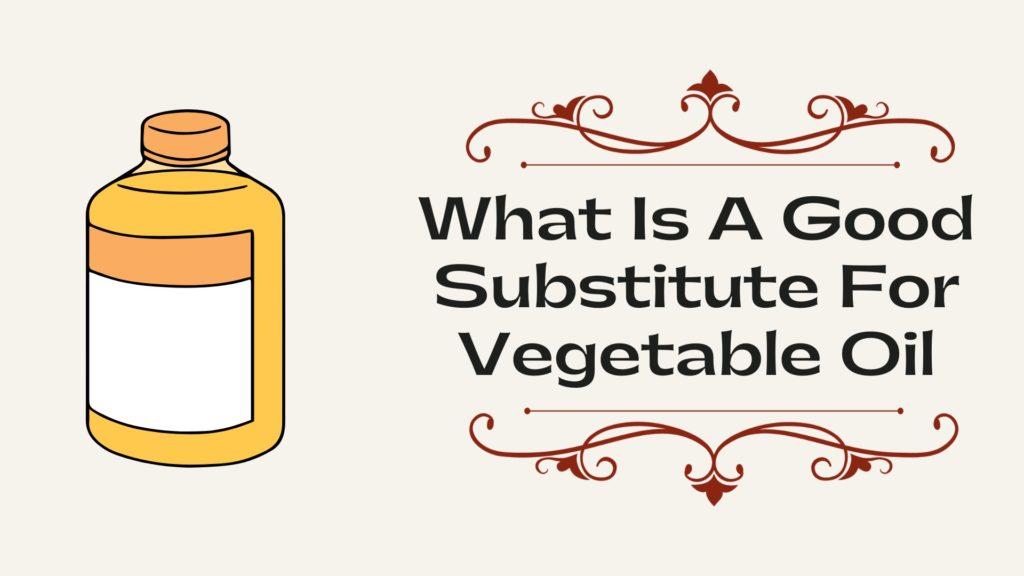
Vegetable oil is plant oils and usually is liquid at specific room temperature. At a low temperature, it becomes solid, and people refer to it as vegetable fats. Vegetable oil has various nutritional components that are beneficial to your body. Such nutrients include omega 3 and 6, vitamin E, fatty acids. It also has polyunsaturated and monounsaturated fats. Its fat is 100%. Unfortunately, it has no carbohydrates, calcium, or even iron and magnesium.
Uses
Apart from baking pastries, cooking, and frying, vegetable oil has other economic benefits. It is an essential ingredient when making soap, skin products, perfumes, not to mention candies, and cosmetic products. Some use dried oil to make paint and biodiesel, among other uses.
Healthy Benefits
It reduces the risk of getting heart disease- A research conducted in February 1990 by The American medical association indicates that vegetable oil normalizes factors that contribute to cardiovascular diseases. Such conditions include high blood pressure, as well as increased serum cholesterol, among others.
- Reduces the risk of developing breast cancer
- Boosts immune system
- Improves your metabolism
- It promotes cell growth
- Lowers anxiety and depression
- It helps to cure acute pancreatitis
- Prevents osteoporosis
- Reduces stomach ulcers as well as improves digestion
- Has an antioxidant property
With all these health benefits, the next question that comes into mind is if one can substitute the vegetable oil with any other oil. The answer is yes. When you go to the supermarket to buy any oil, you will have to consider what you want to use the oil for. Some oils are suitable for frying since they have high smoke points. Some are not good for baking due to their intense flavor.
Coconut Oil
Maybe you’re asking, can I use coconut oil instead of vegetable oil? Yes, you can. It has fatty acid that is beneficial to your health. Such benefits include improving your heart health, boosting your brain’s function as well as encouraging fat loss. It also reduces harmful abdominal fat.
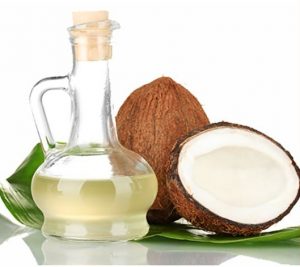
Other benefits of coconut oil are:
Has Antimicrobial Effects
50% fatty acid in your coconut oil is made up of twelve-carbon lauric acid. Once your body digests this lauric acid, it forms monolaurin. Lauric and monolaurin kill harmful pathogens in your body, which include bacteria, fungi, and viruses. You can also use coconut oil as a mouthwash since it can help prevent any infection in your mouth.
Reduce Hunger
Have you been struggling to lose weight? Coconut oil has MCTs that reduces appetite. It is associated with how bodies metabolize fats. If you keep on taking coconut oil after a certain period, you are likely to lose weight too.
Reduces Seizures
A ketogenic diet is a diet that has low carbs but very high fats. Researchers have been studying how such a diet can treat various disorders. They have used such a diet to treat children drug-resistance epilepsy. The researchers have noted that this diet reduces seizures in children dramatically.
Raises HDL Cholesterol
This oil increases good cholesterol in the body (HDL) and reduces bad cholesterol (LDL). Increased HDL is beneficial to your heart health. It is also associated with metabolic health.
Protects Skin, Hair And The Teeth
Other than eating coconut oil, you can also use it for cosmetics purposes. If your skin is dry, it can improve its moisture content and even reduce eczema symptoms. It protects your hair against damage. It also works as a weak sunscreen since it can block up to 20% of UV rays. If you use it in a mouth wash, it helps to kill harmful bacteria.
Canola Oil
Can canola oil be substituted for vegetable oil? Yes, if you intend to use it for frying, roasting, and baking. The reason being, it has a high smoke point of up to 400 degrees F. If you are looking for any oil you can use for sauteing purposes, canola oil is not the best option since it has a neutral flavor. Its health benefits include:
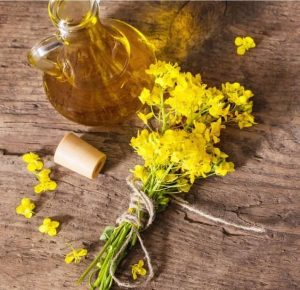
- Healthy heart- All thanks to its high concentration of plant sterols that lowers heart disease risks.
- Lowers cholesterol- The plant sterol promotes the absorption of good cholesterol and reduces the absorption of the bad one.
- Reduces inflammation- It is an excellent anti-inflammation agent.
- Skin care- It can eradicate skin problems since it has vitamin E and K.
- Increases energy levels
- Lowers the risk of cancer
- It improves the functions of your brains
People associate canola oil with various health risks such as coronary heart diseases as well as retardation of healthy growth.
Butter
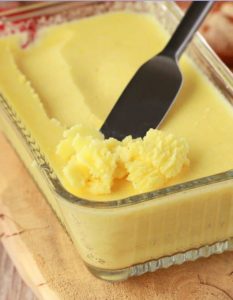
- Healthy heart- It contains Vitamins A, D, and E as well as lecithin and selenium that is good for your heart.
- Skin-care- Its excellent facial moisturizer helps to soften your skin
- Cancer prevention- It has conjugated linoleic acid that reduces cancer risk by reducing fat accumulation in your body.
- Bone growth development- It has vitamin k2 that influences facial bone development. It also strengthens your skeletal system and prevents tooth decay.
- Healthy digestion, as well as weight loss- helps to maintain good gastrointestinal health. Has CLA content responsible for reducing body fat and maintaining a healthy weight.
Olive Oil
Can you replace vegetable oil with olive oil? Yes, you can. Olive oil has many health benefits which includes
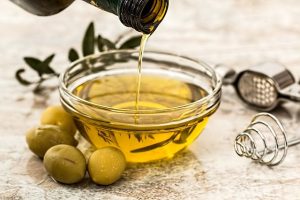
- Preventing stroke
- Offers protection against heart diseases
- Fights Alzheimer’s diseases
- Reduces the risk of type 2 diabetes
- Anti-cancer properties
- Helps to treat rheumatoid arthritis
- Has anti-inflammatory properties and antioxidants that are very strong
Many other oils including avocado oil, sunflower oil, applesauce oil, organic grape seed oil, corn seed oil, soy bean oil are also in existence.
Conclusion
You can substitute vegetable oil with other oils, depending on the intended use. Quick substitutes of vegetable oil include; coconut, butter, canola and olive oils. Some oils are suitable for cooking due to their flavor others for baking and frying due to high smoke points. When you go shopping, clarity on the health benefits of each type of oil helps buy the right choice.

John DiBella is a graduate of The Culinary Institute of America, a cooking enthuthiast and a writer. When he’s not writing blogs about home kitchenware, he enjoys hiking, camping, sailing and cooking.
